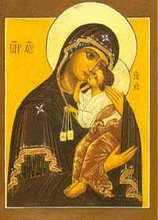I am reading a book right now called A Natural History of Latin by Tore Janson. One of the people it made me think about was Charlemagne. Of course the author spoke a lot about him, thus I thought about him. As the Romans expanded their empire and took over administration of the Mediterranean area Latin became the common language for the entire western empire. Business, government and schools were all conducted in Latin and an increasing amount of soldiers were being settled in conquered lands. Because of these things Latin edged out the local languages in the western part of the empire. When the Roman West dissolved into smaller independent states at the end of the Fifth Century every province except Britton spoke Latin. As the various German tribes took control from each other they spoke different languages but ruled over Latin speaking peoples and, just as in China we saw the Sinicism of conquerors, the Germans adopted the Roman language as their own. As time went on the language changed and adapted to local dialects, thus Spanish, Italian and French were born. We can even see evidence of the change before the fall of the west, we know that Latin began to become Italian in the spoken language even though written Latin held on to the classical rules in the early part of the Fifth Century. The public schools continued to be conducted in Classical Latin through their decline and collapse in the Seventh Century. The learning institutions did not disappear in the Church though, which continued to use Classical Latin.
After the rise of Islam and their conquest of North Africa the Bourbon Muslims crossed the Straights of Gibraltar and began the conquest of Europe. Thanks to the military might of Charles the Hammer they were defeated in France and retired to the Iberian Peninsula. The Spaniards faithfully began the Reconquest and further to the northeast a great leader was born, the grandson of Charles the Hammer – Charles the Great. After reunifying the old Roman West he rightfully looked to restoring the scholastic traditions of the Empire.
It is not hard to sympathize with the sentiment he felt. If you ask me or anybody I know we will all tell you that we speak English. If you ask people in Atlanta, New York, Boston, or Chicago they will all tell you the same thing, but if you take the street languages of those places and compare them to the street languages of Sidney, Dublin, Perth, London or New Zealand then you will definitely find differences even though everyone in those cities all speak English. In New Mexico, Arizona, Texas and Nevada the residents claim the heritage of the Wild West and in some of the more rural communities the spirit is still alive and in-your-face. The inhabitants of these communities are rightfully the heirs of such a tradition and feel a close connection to it despite the vast differences that exist in practice and culture. Charles the Great felt the same way about the Roman Empire and rightfully so.
After the evangelization of Ireland, Scotland and England the scholastic tradition of the Romans was richest in that area. A very large monastic community grew up in that part of the world and Church scholastics was alive and well. In fact, it was the intellectual center of Western Europe. Alcuin was a scholar from the city of York. He moved to mainland Europe and became associated with Charlemagne. He brought the intellectual heritage of the island with him and began to propagate it in Charlemagne’s empire. Finally, after centuries of disunity and degeneration, Europe was again unified. Roman law, the Roman Church and Roman scholastics were all to be unified under the new Holy Roman Emperor. What a glorious occasion! The return of the glory of the Eternal City and the ushering in of a new era! Who wouldn’t be excited and have hope and delight at the good things to come in the foreseeable future?
Saturday, December 8, 2007
Subscribe to:
Post Comments (Atom)





No comments:
Post a Comment